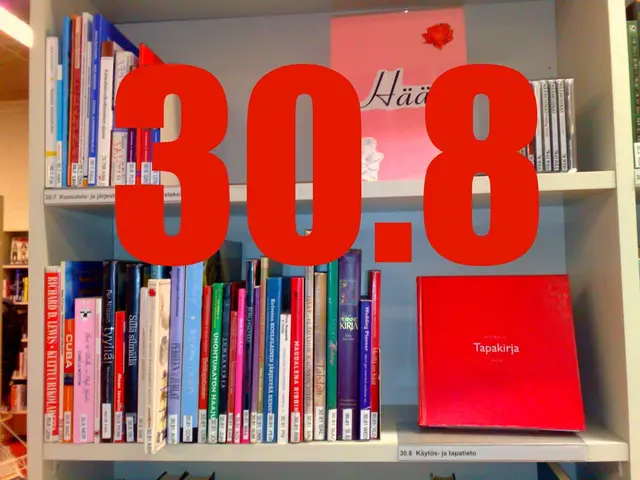Avoiding Tax Scams in 2025: A Three-Step Guide to Evading Deception
Tax Season Scams: How to Stay Safe During the Income Tax Declaration Campaign in France
By Noah SdiriPublished on
With the 2025 income tax declaration campaign in full swing, taxpayers have the pressing task of fulfilling their obligations while remaining vigilant against the rising tide of scams. Every year, scammers flock to this period, posing as tax officials to steal your personal or banking information.
Beware of Tax Scams
The most common salvos involve emails and SMS messages, often claiming to announce a tax refund or an urgent adjustment. These messages entice you to click on a seemingly legit link that transports you to a convincing replica of the tax website. In other instances, an alarming SMS, signed 'DGFIP Alert', accuses you of fraud or overpayment.
Moreover, this year saw the emergence of a new scam: blatant SMS about unreported cryptocurrency transactions, casting a 40% surcharge. Much like the others, the goal remains the same: stealing your precious personal data or extorting money.
Businesses too are not impervious, as they're targeted through fake transfer orders and pseudonymous invoices mimicking those from the tax administration.
How to Protect Yourself## Protect Your Personal Space
To safeguard your sensitive information, never disclose your personal or banking details via email, SMS, or over the phone. If you have doubts, transact only through the official website impots.gouv.fr, ensuring the URL displayed in your address bar matches the authentic one.
Additionally, secure your personal space by strengthening your tax number password and employing a reputed password manager. Enabling two-factor authentication from the My Profile section will also add an extra layer of protection—in fact, it'll become mandatory by summer 2025.
Furthermore, lock down access to FranceConnect, the platform serving numerous administrative procedures, including taxes. Compromising FranceConnect can incur several adverse consequences. If you suspect you've been the victim of a scam, promptly contact your bank, followed by reporting the case to the relevant authorities.
Putting it All Together
Arming yourself with knowledge and practicing caution during tax season is the best defense. Remember that French tax authorities will never request your personal or banking data through email or SMS, and all transactions should exclusively occur via the official website impots.gouv.fr.
Keep a close eye on your accounts, watch out for scams over social media, and be extra careful about your personal data all year round. Filing your tax return early can also help protect you from identity theft-related scams.
By staying diligent and informed during the income tax declaration campaign, you can effectively deter scammers and enjoy a bustle-free tax season.
Note: Here are some enrichment insights to help you familiarize yourself further with the tax scams and protection methods in France:
Overall
During the income tax declaration campaign in France, individuals should be aware of several common tax scams and take steps to protect themselves. Here are some key scams and how to avoid them:
Common Tax Scams
- Phishing Emails and Messages: Scammers send emails or messages promising a tax refund or threatening penalties. They ask you to click on links or provide sensitive information like bank details. Remember, French tax authorities never ask for bank details via email.
- Impersonation Scams: Similar to IRS impersonation in the U.S., fraudsters might pretend to be from the French tax authorities, demanding immediate payment via phone or email. Official communication from tax authorities is usually through postal mail.
- Ghost or Unverified Tax Preparers: Scammers might pose as tax professionals, offering large refunds, and refusing to sign the tax return or provide required identification numbers. Ensure that any tax preparer is certified and legitimate.
- Identity Theft Refund Fraud: Scammers use stolen personal data to file a fraudulent tax return in your name. Filing your return early can help prevent this, and being vigilant about your personal data is crucial.
How to Protect Yourself
- Verify Information Channels: Always check that communications are from trustworthy sources. Tax authorities generally contact you through official channels, not unsolicited messages.
- Be Cautious with Links and Attachments: Never click on links or open attachments in suspicious messages. These can lead to device infections that compromise your data.
- Use Secure Online Portals: When managing your tax affairs online, use only the official government portal, such as impots.gouv.fr, to avoid providing sensitive information to scammers.
- Monitor Your Finances: Keep an eye on your accounts for any unusual transactions. Report discrepancies promptly.
- File Returns Early: Filing your tax return early can prevent identity theft-related scams.
- Stay Informed: Stay updated on the latest scams and inform others, especially those who may be more vulnerable to these tactics.
By following these precautions, individuals can significantly reduce their risk of falling victim to tax scams in France.
- During the income tax declaration campaign, be wary of tax scholarship scams that may claim to offer financial aid but are actually phishing attempts designed to collect personal and banking information.
- Report any suspicious messages claiming a tax refuge or ownership of undeclared cryptocurrency transactions, as these are another form of phishing scams aimed at circumventing personal finance and finance information.
- It's essential to avoid disclosing personal or banking details via email or SMS when dealing with tax matters, as this can lead to tax fraud. Instead, use the secure online portal, impots.gouv.fr, to protect your data profiling.
- DGFIP, the French tax service, does not send urgent adjustment texts signed 'DGFIP Alert', so if you receive such a message, it is likely a scam aimed at collecting sensitive information.




